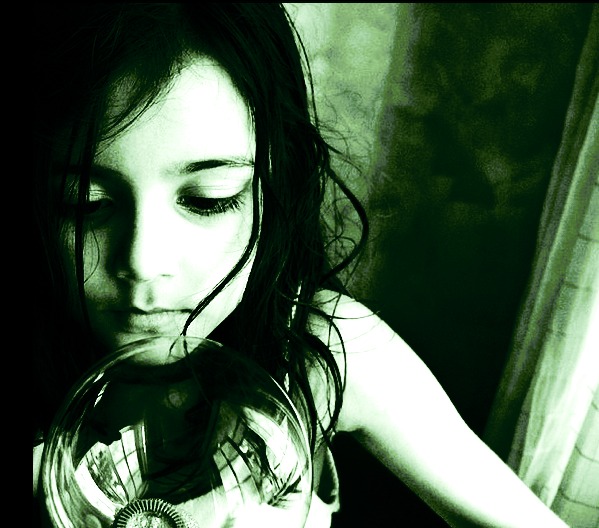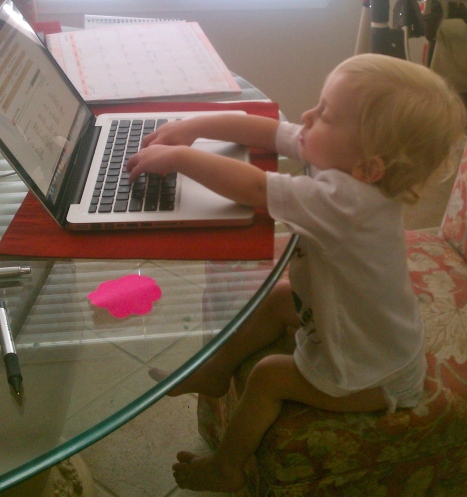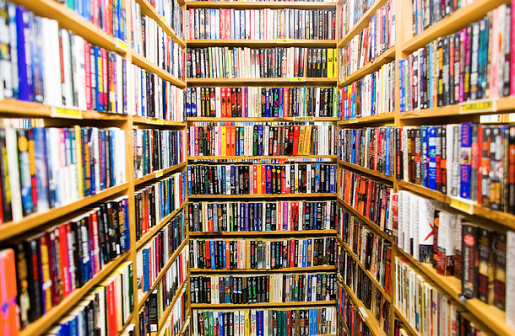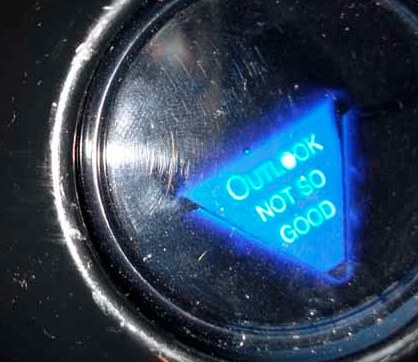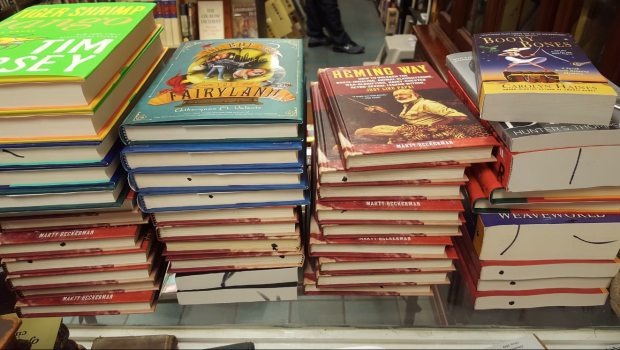The Ugly Truth of Publishing & How BEST to Support Writers
Well, I figure I have one more day to drunkenly torch my platform. Sad thing is I don’t drink. I am apparently this stupid when sober . Actually I am writing this as a follow up for my rant from the day before yesterday, because knowledge is power.
Writers need this. Your friends and families need this. Readers need this. The more people get how this industry works, the more everyone can start working together for everyone’s benefit.
In my book Rise of the Machines—Human Authors in a Digital World, I go into a LOT more detail and I highly recommend you get a copy if you don’t have one. I spend the first chapters of the book explaining how the various forms of publishing work so you can make an educated decision.
All types of publishing have corresponding strengths and weaknesses and this is a decision only the writer can make. Not all writers are suited for self-publishing. Not all books are good for traditional.
And so on.
But today, dear newbies. I am going to take you on a tour behind the curtain. Also for those who are NOT newbies, feel free to pass this to family in a “Take Your Clueless Friends Who Think You Will Make a Million Dollars as Soon as You Publish To WORK Day.”
Nuts and Bolts of Publishing
Publishing is a very old business that has not updated its business model since the biggest traffic snarl in NYC involved a runaway horse carriage colliding with a drunken fish monger. In the early days of publishing in order to encourage bookstores to carry books, publishers invented what was known as the consignment model.
Publishers would guesstimate how many books would sell, send them to the merchant with the promise that, whatever did NOT sell could be returned at no cost. The merchant only had to pay for books that sold.
Hint: NO OTHER BUSINESS TODAY DOES THIS.
Can you imagine a car manufacturer sending out fleets of new cars that customers could test drive all day long. Run up mileage, spill drinks in the console, but then if they didn’t sell the dealership could say, “Nah, we’re good. Can you send us different models from another designer? We really dig that sleek crossover.”
Because often that is what happens with books. People use bookstores like a freaking library. They go into the adjacent Starbucks with a stack of books, read to their heart’s content and then leave a stack of books for the clerk to put away.
Now the spines are cracked, the pages wrinkled and no one is going to buy that book, but the bookstore isn’t out anything because they can rip the covers off and send them back. Ultimately the writer is the one who takes the hit. Kind of the publisher but really the writer as we are about to see.
Because bookstores want to provide a “browsing experience” they don’t want to rely on the new and far more efficient way of doing business, which is POD (print on demand). They like having stock to show off, which of course they do because they are not really out anything.
How Writers Are Paid
Why I kind of derailed into a rant Tuesday was because there are so many things that get presented as “blessings” for writers when in fact, they are benevolently killing us. They are undermining us and making it harder and harder to make a living wage. We can’t criticize these sacred cows lest we look like jerks.
You ever wonder why people just assume that a published author is rich? That is because this used to be a profession that did rather well. Granted it was easier to be elected to congress than write for a living, but these “good ideas to sell more books” have eroded the Author Middle Class and created a Publishing Third World Economy.
You know what a marker of a third world economy is? My degree is in political economy. In a third world country wealth is concentrated at the top. There is little to NO middle class and the vast majority are working poor or poverty level.
If you peruse my blog from the other day, I mentioned the ways we are paid best (digital and new books). We get a royalty. Anything used? We make no money. But let’s explore a bit further…
Compounded Sales
Back in the days before the mega bookstore, there was a very strong Author Middle Class. This author wasn’t a gazillionaire, but he did really well writing for a living. The reason was that a smaller store like B. Dalton often carried an author’s backlist. If you are old enough to remember browsing these small stores, you might even remember that factor coloring your decision.
How I ended up hooked on any number of SERIES was that the bookstores stocked the series. I didn’t want a standalone book. If I fell in love with an author or characters, I wanted to be able to keep reading.
What this meant was that writers weren’t being paid royalties from ONE book, but many books. Even if the author didn’t write series, if the author had multiple titles, odds were pretty good that the store ordered those, so even with single titles, a browsing reader could be assured they could get more than one title from THAT author.
But there was a downside…for the reader. Books were more expensive. The store was not the size of an aircraft hangar and had no place to buy a frappucino and good luck being able to buy a figurine of a chubby cat reading Shakespeare.
The MegaStore is GREAT for READERS…and Writers of COURSE
So then Borders and B&N came on the scene. I still remember how they were lauded. How they were going to improve literacy because books would be so much more affordable! They were “cultural centers” and “bookish hubs”. Writers will get so much more “exposure.” Does any of that sound familiar? Refer to that @$$hat article I was ranting about.
But there was a problem. There is no free lunch. Those “deep discounts” came at a cost…to the writers. In order to discount the books the way they do, the mega stores don’t stock like the old indie bookstores unless an author is a household name guaranteed to sell.
Megastores are in the business of moving high volume. That is how they give the consumer the discount. Books, for the first time in history, had a far shorter shelf life than ever before.
Instead of books remaining in the store and giving the writer time to cultivate a fan base, the covers were ripped off and the books pulped.
As a consequence? The mid-list author (Author Middle Class) was nearly wiped out. Authors who’d made a very good living previously had to return to the regular workforce (I.e. teaching) because they no longer could live off their writing income.
I had a friend of mine who won a Nebula Award in science fiction. She went from making a regular income off ELEVEN titles, to making income off ONE title at a time.
Even though she was a respected and award-winning author, she had to give up writing full time (until Amazon).
***This was all until Amazon, by the way. Many of these authors who were driven to poverty actually now make more money than they ever did traditionally published and they no longer have to be pillaged by megastores. Which is why I get pissy when people act like Amazon is the devil and bookstores are so awesome.
Megastores make money with volume and offering the newest shiny. But the problem is that books often are like fine wine. I said wine, not whine . They need time to mature.
But the problem was that the very literary ecosystem that helped launch unknown books like The Divine Secrets of the Ya Ya Sisterhood into legendary status…was destroyed. Traded for beadsfrappucinos. Borders and Barnes & Noble obliterated the small bookstore and took with it the earning ability of many writers.
The mega-bestsellers did VERY well. Ergo my reference to Publishing Third World. Wealth was redistributed and concentrated at the top and the middle class was eradicated.
Book Placement
If you do not have an on-line platform, then Browsing Roulette is about the best you can hope for. But those spots in a bookstore are all negotiated in a writer’s contract. Those front slots on a table are premium real estate.
Same with displays. Ironically, though, the authors with the most selling power often get the best displays (remember the volume thing). But, George R.R. Martin is probably going to sell books. The writers who need that placement the most are the least likely to get it.
This isn’t personal. It’s business.
If I came out with a novel, I am going to sell a heck of a lot less than George R.R. Martin. Well, at least five or six copies less .
In seriousness, though it makes sense to display your heavy hitters. Problem is then that the newer writer no one knows then better hope her last name falls at the fortuitous eye-level because she will be spine-out on a shelf.
And if the time runs out and no sale? Off with that cover and the book is pulped.
Advances
Before I became a writer I bought books everywhere. Because it was not my profession I guess I really just never put any thought into how that writer was paid. If I bought a book at a used bookstore and it was new, I assumed it was overstock. I had no idea what a remainder was (more on that in a moment).
I’d also watched movies and heard this term “advance” tossed around as if it meant money rained from the sky. In fact, as a new writer, I dreamed of all kinds of ways to spend my million dollar advance.
Advances are not free money. They are essentially a payday loan. It is money loaned to the author against the money eventually earned in royalties.
So if an author is given a $20,000 advance, he is not paid another dime until that book earns over $20,000.
Herein lies the pickle.
If an author doesn’t “earn out” the advance, odds are she will not be given another book deal. So, if you get that $20,000 and the book makes $19,700? No more deals. That’s why BIG advances seem like a good thing, but can actually wreck a career. It’s far easier to earn out a $20,000 advance than a $90,000 one.
Writers don’t have to pay back the advance, but if it doesn’t “earn out” it means the writer is not a wise investment for the publisher so the odds are not good for the author getting another book deal. Depending on the author or the book, they might get another deal. But with newer authors? Probably not. And first-time authors? Forget about an advance. Not happening unless your name is Kardashian.
This was a really big deal before the digital age because traditional publishing WAS the only game in town. So if an author didn’t make her quota? Game over.
These days, advances are pretty much a thing of the past. Any money most writers will make are going to come from US buying books from them.
Print Runs
One can tell how much confidence a publisher has in a book (author) by the print run. Low print runs mean the publisher is being conservative to hedge losses…but low print runs mean the writer doesn’t make as much. A standard print run for a new unknown author is 10,000 books. But traditional tends to limit authors to one book a year so even if an author makes $2 per book, that is $20,000 before taxes.
Yes, J.K. Rowling is a billionaire but she is not the norm.
***Btw, all of this is VERY unscientific and very broad strokes to give y’all the gist.
This isn’t BAD for the new writer because it is way easier to sell out that 10,000 and then she will get a bigger run the next book and the next as her brand grows (if she doesn’t starve in the meantime).
However, higher print runs? We are in the same deal with advances. If you don’t sell out your print run, the remaining copies are remaindered.
There are ways writers can buy a portion of their remainders to sell by hand and they can get a far lower royalty off remaindered copies that are then sold through wholesale outlets and used bookstores.
Usually if you see a new book at a used bookstore and it looks like this (pic below)? It is a remaindered copy. That’s why yes, I get the Doctrine of First Sale and that used bookstores are not doing anything “illegal.” But don’t assume that a writer was paid a full royalty the first go. That isn’t always the case.
Yes, this is a great fabulous discount for the reader, but when I see this? My heart feels heavy and sad for the author. That is why in my last post I said, YES feel free to buy used but if you can, please see if you can buy new from the author. The reason is that those sales can make the difference in that author earning out the advance, selling out a print run and getting their next book contract.
Because used bookstores do not favor self-published and indie authors. Most of their stock will be traditionally published authors so you (readers) supporting who you like with a new sale becomes far more important to that writer’s future and career.
Royalties
Traditionally published authors are often paid yearly. Sometimes quarterly. That is negotiated. It is why you have an agent. So whatever the author makes, Vinnie the Fish Agent makes sure the publisher pays, then takes 15% (pretty standard). Then the writer is subjected to self-employment taxes, but with all this “exposure” from the megastore the writer might qualify for food stamps.
So writers are paid like farmers. Let your family know that your down payment on the yacht might be delayed.
Reviews
I get that a lot of people buy used because they are on a budget. Been there so *fist bump*. You can still support writers in meaningful ways.
Even if you buy new, there is another way you can support writers you love. Write a REVIEW. A GOOD ONE.
As a writer I have a personal policy. If I can’t say something good, I shut up. Mainly because I AM far more picky about story being a writer and an editor but also this business is brutal. If we are not supporting each other? Who will? Because our families don’t get us. Our significant others might. Our kids think we are nuts. So I only leave glowing reviews. But that is me. Writers shouldn’t eat their young.
For READERS. Reviews are more important now than ever before, especially for the indie and self-published author. The reason is that with the change in the publishing paradigm, the slush pile (unfortunately) has been dumped into the reader’s lap. There are a lot of bad books out there. But even then, that really isn’t all that big of a problem.
Want to know the bigger problem?
There are a lot of good books out there.
With the Internet and social media and the explosion of books there is SO MUCH content. This means consumers are overwhelmed with choices. Reviews help writers sell books because if readers see a book with no reviews or five reviews versus a similar title with thirty reviews? Who will they choose? Additionally writers gain access to promotional tools like Bookbub, but can ONLY do this with a minimum number of reviews.
Instead of sending me an e-mail about how much my book changed your life? Put it on Amazon and change MINE!
Readers are essential to our success beyond just the sale. If you love our books, your promotion means a thousand times more than any ad I could pay for. Ads and marketing don’t sell books. Never did and never will. Only thing that sells books is word of mouth.
Beloved reader? You would be shocked how much regular people will pay attention to you. That review is worth your weight in gold to me for a number of reasons. Humans don’t like being first. So unless a couple of you are brave and review? My book can sit with NO reviews and it is then unlikely to sell.
Think about a shelf with ONE item. It freaks us out. There is only ONE. Is it poison?
Secondly, when you review us, Amazon favors our books in the algorithms meaning more people SEE our book. More people SEE it, odds are I will sell more copies. In the on-line world YOU have the power to get US that awesome front of the store book placement. The more reviews the better the algorithm. Better algorithm, more views. More views, more sales, more sales—>we make a best-seller LIST!
You can also use your social media because it means more than ours.
Tweet a picture of our book. Put it on Facebook. People in your network ARE noticing. Peer review and approval is paramount in the digital age. And don’t support your favorite author on Goodreads as a first choice (AMAZON reviews are better). The only people hanging out on Goodreads for the most part are other writers and book trolls.
Support us on your regular Facebook page or Instagram or Twitter. Because when you post a great new book you LOVED your regular friends see that. When they get stranded in an Urgent Care or an airport? What will they remember? THAT BOOK. They won’t be on Goodreads. Trust me.
So there is your year’s end peek behind the curtain. Sorry (again) it was so long but this is meant as a reference/guide. Readers, we love you. Honest. It is why we are so stupid to work for free so much. This is a labor of love in many ways. Writers, I hope this helps you understand your profession better and maybe even “get” why I was so ticked off the other day.
Happy New Year! I love all of you very much. So NO, your writer friend is NOT YET a millionaire, but you can help MAKE HER ONE .
I love hearing from you!
What are your thoughts? Feelings? Are your eyes wide open? Would you like to add anything?
I love hearing from you!
Make SURE you sign up for my upcoming classes! This is part of how I fund my plans for global domination. Purchase a class! Buy a book! OR ignore all that follows but DAMN sure buy all your books NEW or I WILL FIND YOU ….
Remember to check out the new classes listed at W.A.N.A International. Your friends and family can get you something you need for Christmas. Social Media for Writers, Blogging for Writers, and Branding for Authors.
Also, I have one craft class listed. Your Story in a Sentence—Crafting Your Log-Line. Our stories should be simple enough to tell someone what the book is about in ONE sentence. If we can’t do this, often there is a plot problem. This class is great for teaching you how to be master plotters and the first TEN SIGNUPS get their log-line shredded for free, so you will be agent ready for the coming year.
Enough of that…
I love hearing from you!
To prove it and show my love, for the month of DECEMBER, everyone who leaves a comment I will put your name in a hat. If you comment and link back to my blog on your blog, you get your name in the hat twice. What do you win? The unvarnished truth from yours truly. I will pick a winner once a month and it will be a critique of the first 20 pages of your novel, or your query letter, or your synopsis (5 pages or less).
For those who need help building a platform and keeping it SIMPLE, pick up a copy of my latest social media/branding book Rise of the Machines—Human Authors in a Digital World onAMAZON, iBooks, or Nook.
